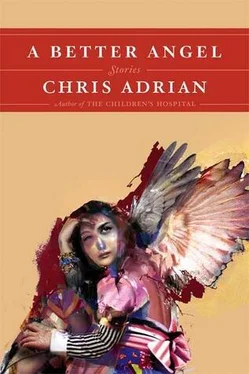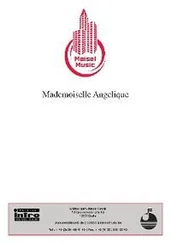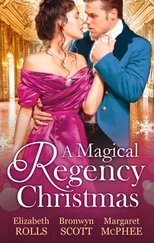My father had a little bell that he rang when he wanted something. Mornings, I would hear it and rise from the single bed I’d slept in when I was five and go downstairs to see what he wanted. At first after he came home it was to be helped out into the yard to sit in the sun, and then it was coffee or breakfast when he could not get those for himself, and then it was just to be turned or for help retrieving a blanket that had migrated down past his hips, and then finally he would just ring it and ring it as constantly as a beggar Santa, not knowing what he wanted, in which case I gave him a pain pill (and took one myself, always supremely faithful to my rigorous policy of one for you and one for me), and this would settle him.
Janie Finn was our hospice nurse. I always hated hospice, and hospice people, nurses with smart heels and smother pillows, and the women in charge of the palliative care programs, who seemed universally to be dark-eyed and dark-haired and very tall. They dress like nineteenth-century Jesuits and cherish crushes on death. But Janie brought me liquid morphine and Ativan — and either of those would be enough for me to forgive anybody the mere crime of being. “Your jab and your hook,” she said in the kitchen the day she met us. She had placed the bottles in my hand — I hadn’t even had any yet and already I could feel a lovely warmth coming out of them, and they seemed to catch the afternoon light in a very special way. Janie set her feet and threw out two quick punches. “A one-two against the pain,” she said. “One-two! Give it a try.” With a bottle in either hand I gave it a try, and, yes, my fists seemed to have a certain heft to them. I threw a punch at the angel and she actually ducked away.
I made free with the drugs, and made a lot of trips back and forth to the pharmacy, and imagined the little man in the back filling the bottles from two big coolers of bright, pure drug, and dreamed of following him back to put my mouth to the spigots, because I was sure that if I could just take enough, then the angel would be permanently transformed, and if it happened also to be enough to kill me, then all right. I was sure that she would take me someplace bearable. How she hated those little bottles. If I’d had them when I was twelve, I might have made a normal life for myself with their daily medicine.
“Just put out your hand,” the angel kept telling me. “Touch him and make him well.” Though she hardly ever screeched at me in those last few days, it seemed like a worse torture than ever, to have her demand the impossible of me so consistently, and to blame me like that for how he was getting sicker every day. It made me feel worse than anything she’d ever said to me. I could not ignore a homeless person on the street without her detailing the ways in which I was responsible for his misery, absent policies and initiatives never having established a common weal, as if the hundred thousand sins of omission that were my unfulfilled destiny added up to national and individual catastrophe. It was easier to bear when she blamed me for the woes of strangers, even when they fell out of the sky or burned in their churches. I can make even little children faceless, but my father could never be anonymous to me, and for some reason, as the weeks went by in Florida, I believed her, better than ever, when she told me that every wrong thing I’d done could be redeemed in one miracle, and that if I could make my father well with one hand, then with the other I could do the same for the whole world.
“Make me dinner,” my father said, so I did. It was only three in the afternoon but no matter what time of day it was, the meal was always dinner, and always it was the same thing, a chocolate milk-shake with a banana and a raw egg and a little Ativan in it. When I brought it to him he took a sip and he was done. He turned his head and opened his mouth like a baby bird — this was the signal for pain medication, so I took the morphine out of my pocket and dropped in a few drops. He smacked his lips and turned back to the television, then closed his eyes. “Now I’ll take a nap,” he said. “Go to your room.”
I made going-upstairs noises but went outside instead. It was another brilliant blue afternoon. He kept saying he wanted a storm. We mostly watched television when he could stand to have me around in the living room with him, and we always watched the weather. It was hurricane season but all we’d had was near misses. “Look at that!” he’d say, pointing at a gigantic storm swirling across the Atlantic, or he would shout “Fool!” at the hapless reporters clinging to light poles and declaiming the magnificently obvious. Hurricanes were the enemy when I was a child — they tore up trees and scattered fruit. But now he spoke the names of the female hurricanes with great fondness. “I’ve always liked them,” he said when I asked him about it.
Our nearest neighbor was a mile away, so nobody asked what I was doing when I hung the hurricane shutters on the living room and kitchen windows, and my father asked no questions from inside. He slept so heavily now that a few times, with his arms and legs always so cold, I thought he had already died. I nozzled up the hose and propped it so it would spray on the shutters, and just at dusk I turned it on. The angel was half-ugly and half-kind because I was half-stoned. “You play tricks on him when you should be calling him out of his bed.”
“It’s not a trick,” I said. I spent another few moments watching the sky and taking just the smallest nip of the morphine and then went in. When I came into the living room with a candle he asked what was going on. “A big storm,” I said.
“Finally!” he said.
We had a party during the storm, two more dinners and Ativan and morphine all around, and the storm picked him up, so he was more alert for a while and told me stories of hurricanes past, of ruined crops and toddlers surviving miraculously when a tornado stole them from their homes and deposited them in the next county.
“I know you have secrets,” he said suddenly. And then he said, “Your sister tried to drown you when you were two — do you remember?”
“No,” I said, and asked him to tell me more. But then he thought I was my sister Charlotte.
“How could you hurt a little baby like that?” he asked, and I said I’ve done a lot of bad things.
“Tell me about it!” said the angel. I took another drop of morphine, right in front of him because his eyes were closed, but then as if he could smell it he opened his mouth, so I gave him some, too. And then I took some more, and gave him some more, and then switched to the Ativan. But still the angel was a harpy. “Put out your hand!” she said. “Another angel is coming!”
“It’s all right,” my father said. And then he whispered, “Your mother tried to smother him once. Just a little, with a blanket, and she told me about it right away. But she was depressed, and that’s what you do when you’re depressed.”
“If you were a great man,” the angel said, slurring now, “if you were president — and you could have been president — then I would be a national conscience!”
“Shut up,” I said quietly to her, thinking I had pitched my voice so she would hear it and he would not.
“Don’t tell me to shut up, sassy girl!” he said, and I gave him some more morphine. Though he hadn’t asked for it he sucked at the dropper when I put it in his mouth.
“You can do it,” she said, her face flashing beautiful for a moment. And she showed me, putting out a hand that was soft and white on one side and hairy and rough on the other. She held it over his chest. “All you have to do is finally stop fucking up.”
“You’re ruining it,” I told her, and took a swig of the Ativan, just a tiny sip really, but you are only supposed to take it drop by drop and I knew why as soon as I took the swig. It was too good, and it made everything too beautiful, not just the angel, whose ugly skin flew off as if blown by a real hurricane wind, so her wings were clean again and her naked face and body were open and compassionate. Even my father’s face became beautiful, still yellow and sunken but now utterly lovely, and how strange to see a beautiful face that looked so much like my own. The room shined with something that was not light, and there really was a thrilling storm blowing outside and shaking the walls. Every so often he would reach blindly for something not there in front of him, and he did this now, so I reached with him, and the angel reached, too, all three of us putting out our hands together.
Читать дальше












